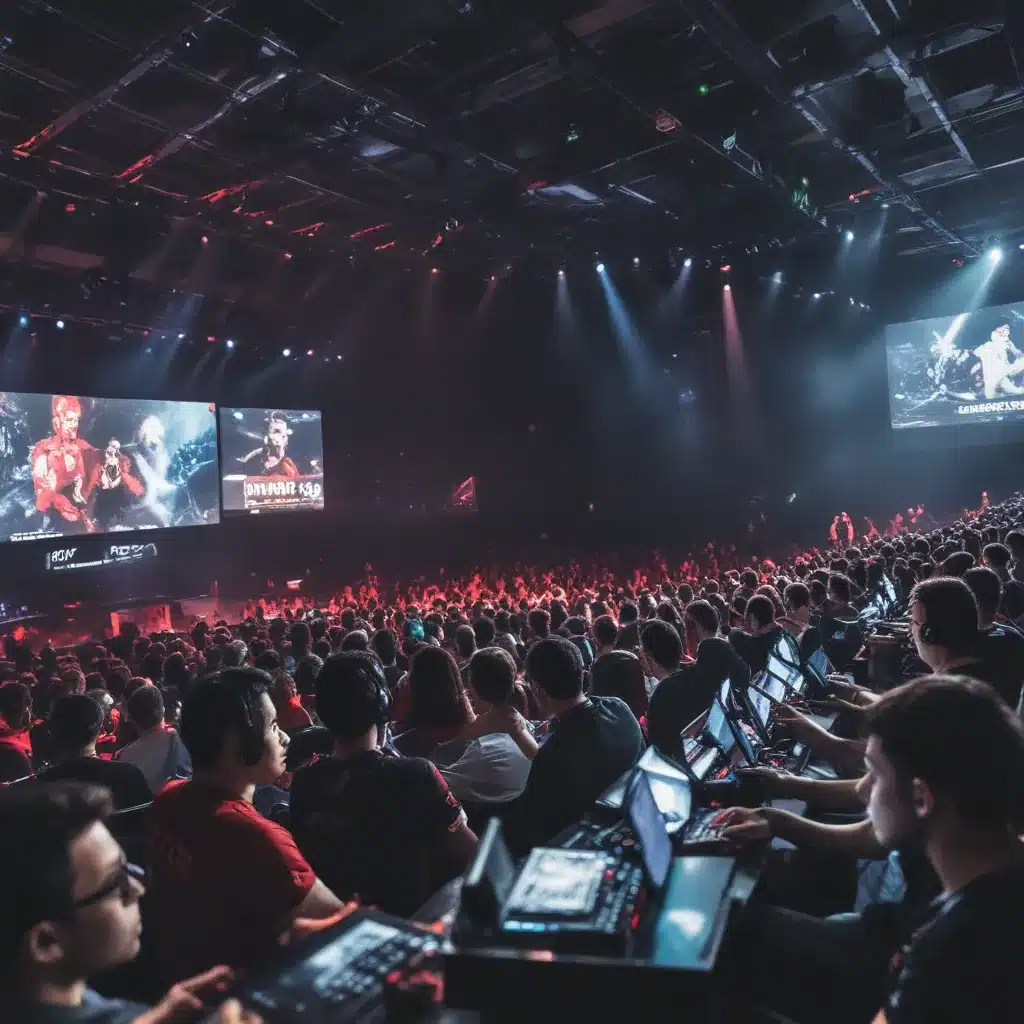
From Humble Beginnings to Global Dominance
The world of competitive gaming, commonly known as esports, has undergone a remarkable transformation over the past few decades. Once relegated to the fringes of popular culture, esports has now emerged as a global phenomenon, captivating millions of fans and commanding the attention of major brands, investors, and media outlets.
The origins of esports can be traced back to the 1970s and 1980s, when the arcade gaming craze and the rise of personal computers laid the foundation for what was to come. The thrill of competing for the highest scores in games like “Pong” and “Space Invaders” ignited a competitive spirit among gamers, leading to the organization of early video game tournaments.
The 1990s saw the internet revolutionize the world of esports, as gamers from different parts of the globe could now virtually compete against each other. This era gave birth to the concept of professional gamers and the formation of dedicated teams. Iconic games like “StarCraft” and “Counter-Strike” became the torchbearers of this phase, drawing in millions of enthusiasts and laying the groundwork for the esports industry.
The Streaming Revolution and Mainstream Acceptance
The turning point for esports came in the 2010s, when the rise of streaming platforms like Twitch brought the action to the screens of millions. This newfound visibility and accessibility attracted major brands, sponsors, and investors, injecting significant financial resources into the industry.
Monumental esports events, such as The International for Dota 2 and the League of Legends World Championship, began offering eye-watering prize pools and attracting global audiences. These high-stakes competitions not only showcased the incredible skills of professional gamers but also cemented esports’ place on the mainstream entertainment landscape.
Beyond the screens and arenas, esports began to influence cultural narratives. It transitioned from a niche hobby to a full-fledged profession, with dedicated training regimes, coaches, and even sports psychologists. The media also took notice, and soon, esports events were drawing viewership comparable to traditional sports.
The Diversification and Professionalization of Esports
As esports continued to grow in popularity, the industry diversified, encompassing a wide range of gaming genres and formats. One notable example is the rise of competitive online casino gaming, such as the Yebo Slots Tournament. This tournament format brings a competitive edge to classic casino games, allowing players to showcase their skills and strategy in a tournament setting.
The infrastructure supporting esports has also become increasingly sophisticated. Professional players often train for hours daily, supported by dedicated teams, coaches, and analysts. Esports organizations provide players with housing, training facilities, and salaries, mirroring the structure of traditional sports teams.
Furthermore, the academic world has embraced esports, with colleges and universities offering scholarships and forming dedicated esports teams. High schools have also started incorporating esports into their extracurricular activities, further legitimizing the industry and cultivating the next generation of competitive gamers.
The Global Impact and Cultural Influence of Esports
The impact of esports extends beyond the gaming world, as it has become a global cultural phenomenon. The Yebo Slots Tournament, for example, attracts players from around the world, creating a diverse and vibrant community that transcends geographical and cultural boundaries.
Esports has also caught the attention of traditional sports organizations and athletes, who have begun investing in and embracing the industry. Professional sports teams have established their own esports divisions, while athletes from various disciplines have expressed their love for gaming and even formed partnerships with esports organizations.
This crossover between esports and traditional sports has opened up new avenues for collaboration and has helped bridge the gap between the two worlds. It also highlights the growing recognition and acceptance of esports as a legitimate form of competitive entertainment.
The Future of Esports: Endless Possibilities
As technology continues to evolve, the future of esports holds even greater potential. Advancements in virtual and augmented reality could enhance the immersive experience of esports, while the integration of esports into education and the creation of esports-focused academic programs will further solidify its place in society.
The IT Fix blog is committed to providing readers with the latest insights and practical tips on the ever-evolving world of technology, including the rapidly expanding landscape of esports. By staying informed and embracing the innovations that are shaping the industry, IT professionals and enthusiasts alike can better understand and capitalize on the opportunities that esports presents.
In conclusion, the evolution of esports from a niche hobby to a global mainstream phenomenon is a testament to the power of technology, innovation, and the human desire to compete. As the industry continues to grow and diversify, the future of esports promises to be an exhilarating and transformative journey, one that will continue to captivate audiences and redefine the very nature of competitive entertainment.
Practical Tips for Aspiring Esports Players
For those interested in exploring the world of esports, here are some practical tips to help you succeed:
-
Practice Regularly: Consistent practice is essential to hone your skills and improve your gameplay. Dedicate time each day to perfecting your strategies and techniques.
-
Learn from Others: Observe and study the gameplay of top esports players. Analyze their decision-making, communication, and problem-solving skills to identify areas for improvement.
-
Stay Informed: Keep up with the latest updates, patches, and meta changes in your game of choice. Staying ahead of the curve will give you a competitive edge.
-
Develop a Strategic Mindset: Approach each match or tournament with a well-thought-out plan. Anticipate your opponent’s moves and have contingency plans ready.
-
Prioritize Holistic Well-being: Esports success requires more than just technical skills. Maintain a healthy lifestyle, prioritize mental wellness, and ensure you are physically and mentally prepared for the demands of competitive gaming.
By following these tips and embracing the ever-evolving world of esports, aspiring players can position themselves for success and unlock the thrilling potential of competitive gaming.












